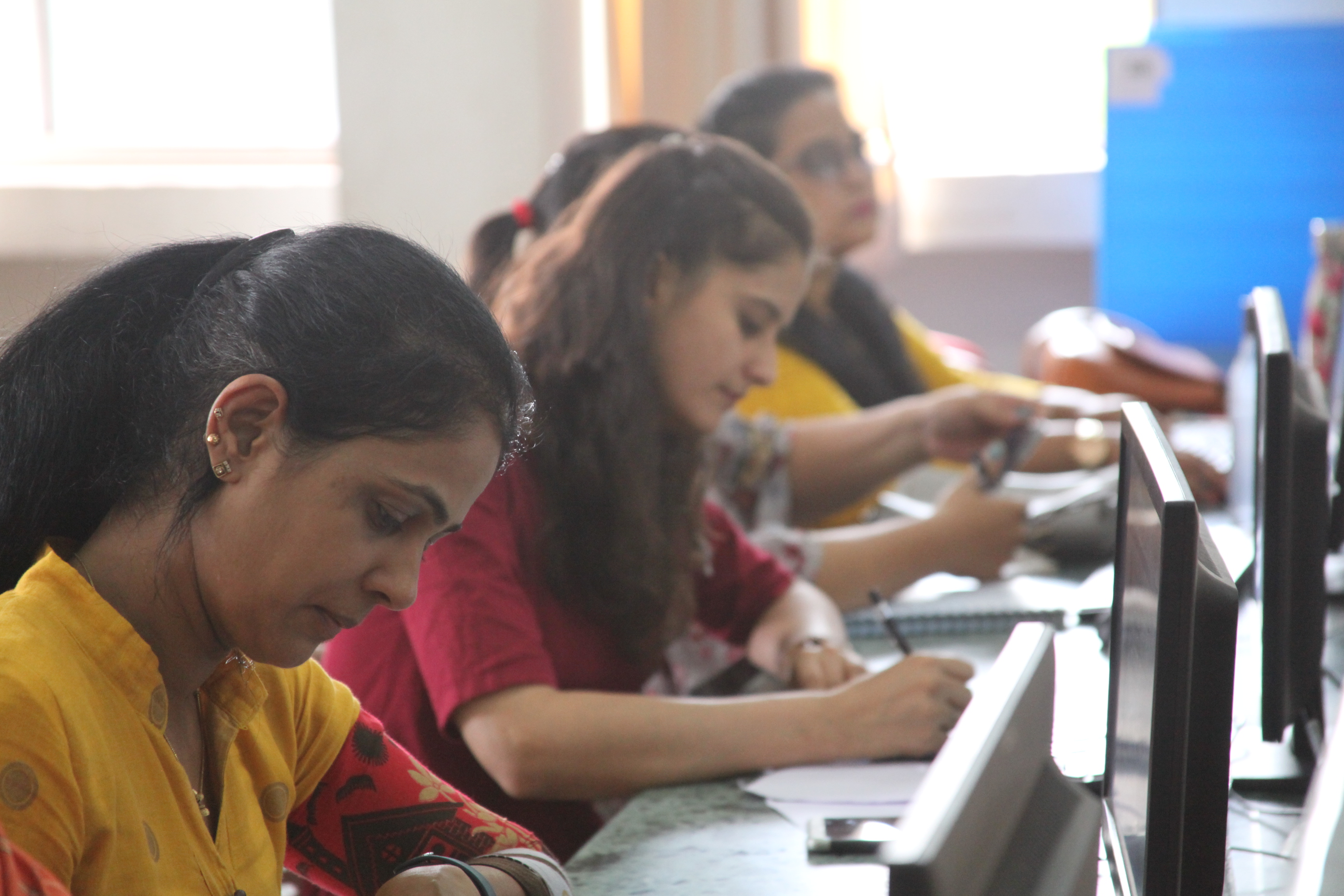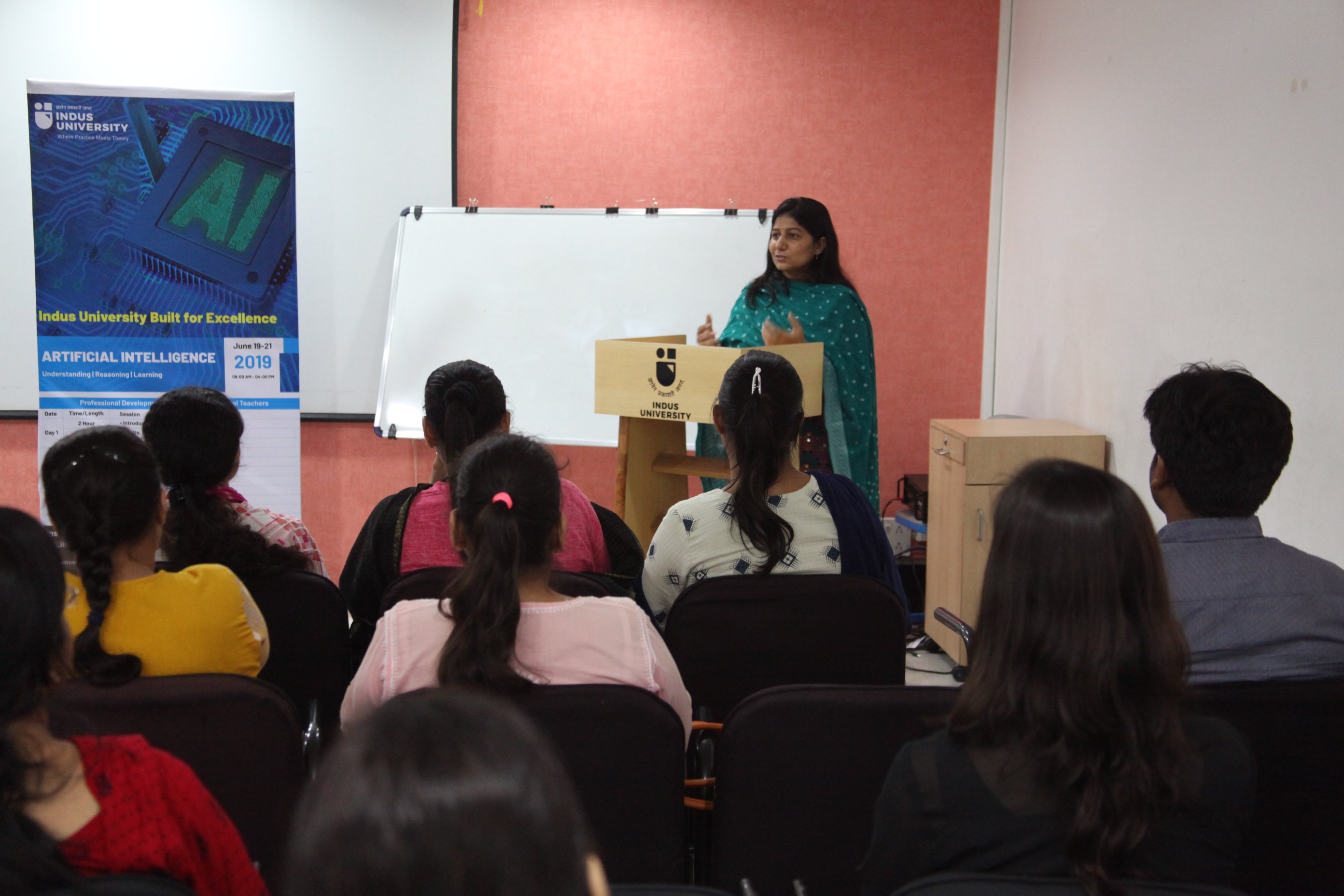Announcement
Get Ready for INDUS CUP 2K26! | Dates: 5–10 January 2026 | Stand a Chance to Win Cash Prizes up to ₹10,00,000!...Read more Get Ready for INDUS CUP 2K26! | Dates: 5–10 January 2026 | Stand a Chance to Win Cash Prizes up to ₹10,00,000!
We are excited to announce the Indus Hackathon 2025, an exhilarating one-day event organized by the CSE Department of Indus University....Read more We are excited to announce the Indus Hackathon 2025, an exhilarating one-day event organized by the CSE Department of Indus University.
26th ISTE Faculty Annual State Convention will be held at Indus University on April 27, 2023....Read more 26th ISTE Faculty Annual State Convention will be held at Indus University on April 27, 2023.
Get Ready for INDUS CUP 2K26! | Dates: 5–10 January 2026 | Stand a Chance to Win Cash Prizes up to ₹10,00,000!...Read more Get Ready for INDUS CUP 2K26! | Dates: 5–10 January 2026 | Stand a Chance to Win Cash Prizes up to ₹10,00,000!
We are excited to announce the Indus Hackathon 2025, an exhilarating one-day event organized by the CSE Department of Indus University....Read more We are excited to announce the Indus Hackathon 2025, an exhilarating one-day event organized by the CSE Department of Indus University.
26th ISTE Faculty Annual State Convention will be held at Indus University on April 27, 2023....Read more 26th ISTE Faculty Annual State Convention will be held at Indus University on April 27, 2023.

At Indus University, The three-year undergraduate program B.Sc. in Computer Science (Specialization in Artificial Intelligence and Machine Learning) is designed to provide students with in -depth knowledge of the ever changing field of computer science. This program delivers concepts of programming languages, algorithms, database management, and software development with a pinpoint focus on experiential learning and practical projects. Students opting for this program not only gain the skills necessary to address real-world challenges but also look forward to taking the technology to an advanced level. Experienced faculty members and state-of-the-art facilities of Indus university ensures that students receive good quality education and keep updated of the recent advancements in the field.
Primary objective of the program is to produce qualified professionals who can use computer technology in any industry around the globe. The three-year undergraduate program B.Sc. in Computer Science (Specialization in Artificial Intelligence and Machine Learning) includes Python, R programming, Computer Vision, Natural Language Processing, Deep Learning, IoT, Big Data Analytics, Neural Networks, Pattern recognition and Soft Computing etc in its curriculum.
This program focuses on real-time problem-solving using AI & ML techniques. Machine Learning (ML) allows machines to learn from experience, adjust to new inputs and perform human-like tasks. Additionally, during the course, the student will be able to master the fundamentals of operating systems (OS), programming languages, and computer networking. In the present scenario, there is a need for skilled candidates to match with the pace of technological development in the modern world. Graduates of the B.Sc. Computer Science (AI-ML) programs can expect well-paying employment in various organizations involved in providing services related to computer applications, software development etc.
According to the admissions committee, students are accepted into Indus University based on merit. Students must complete an online registration form and submit it.
Apply Now!
After communicating with and receiving approval from the admissions committee, students can walk in and enroll in the course.
Call +91 7622007507 or send an email to admission.dcs2020@indusuni.ac.in for additional details.
Course Length: 3 Years (6 Semesters)
Students can only be admitted to the B.Sc Computer Science programme if they meet the requirements for admission set forth by the institute. The applicants will not be able to enroll in the institute if they are unable to meet the eligibility requirements. Various universities and institutions have different eligibility requirements. Below are the essential requirements for admission to the B.Sc in Computer Science programme:
For Reserved category candidates: 40%
Students after graduating with B.Sc. in Computer Science (AI-ML) can be benefited because of following scope and opportunities:
Many degrees are available in artificial intelligence and machine learning, some of which are more specialized than others. The B.Sc in Artificial Intelligence and Machine Learning is one such degree programme. This three-year programme helps students become knowledgeable in this area through theory and practical workshops.
Candidates who complete the programme will be able to work as:
Big Data Engineer: A data engineer is not directly involved in the creation of artificial intelligence (AI). He is in charge of gathering, conserving, and analyzing the data for later use. They are essential to the company's overall growth of machine learning procedures.
Business intelligence developer: A business intelligence developer's job is to examine and comprehend market trends thoroughly so they can be followed while keeping the company's profits in mind.
It is their duty to comprehend the company's ongoing operations and spot any issues so that the appropriate solutions can be offered. To put it briefly, a business intelligence developer's job is to make work more accessible and more productive.
Data Scientist: Data scientists gather and evaluate a variety of business outcomes. They must offer insightful deductions that may be used to address business-related issues in the future. After reviewing the previous reports, they are obligated to provide future projections.
Machine Learning Engineer: Building self-running software to support machine learning algorithms is the responsibility of machine learning engineers. They must accumulate the necessary knowledge to build, test, review, and improve these programmes and hence the whole services/products.
AI Data Analyst: Data mining, data cleansing, and data interpretation are tasks carried out by those with the title "AI Data Analyst." They are essential in clearing out surplus data from systems and making room for the intended data.
Robotics Scientists: Robotics scientists aim to create, maintain, and enhance the productivity of robots. Globally, there is a high demand for robotics scientists. With more businesses attempting to complete robotic projects, this position offers excellent pay and limitless career advancement opportunities.
The Training & Placement Department (T & P Dept.) at Indus University has a separate team that bridges two essential ends: academia and industry. It demonstrates a link between educational institutions, university departments, and businesses.
The focal point for career counselling for university students pursuing studies in all programmes and streams is the Training & Placement Department (T & P Dept.). It provides students with thorough career options by assisting them in choosing and pursuing their ideal vocations.
Students after graduating with B.Sc. in Computer Science (AI-ML) can be benefited because of following scope and opportunities:
Many degrees are available in artificial intelligence and machine learning, some of which are more specialized than others. The B.Sc in Artificial Intelligence and Machine Learning is one such degree programme. This three-year programme helps students become knowledgeable in this area through theory and practical workshops.
Candidates who complete the programme will be able to work as:
Big Data Engineer: A data engineer is not directly involved in the creation of artificial intelligence (AI). He is in charge of gathering, conserving, and analyzing the data for later use. They are essential to the company's overall growth of machine learning procedures.
Business intelligence developer: A business intelligence developer's job is to examine and comprehend market trends thoroughly so they can be followed while keeping the company's profits in mind.
It is their duty to comprehend the company's ongoing operations and spot any issues so that the appropriate solutions can be offered. To put it briefly, a business intelligence developer's job is to make work more accessible and more productive.
Data Scientist: Data scientists gather and evaluate a variety of business outcomes. They must offer insightful deductions that may be used to address business-related issues in the future. After reviewing the previous reports, they are obligated to provide future projections.
Machine Learning Engineer: Building self-running software to support machine learning algorithms is the responsibility of machine learning engineers. They must accumulate the necessary knowledge to build, test, review, and improve these programmes and hence the whole services/products.
AI Data Analyst: Data mining, data cleansing, and data interpretation are tasks carried out by those with the title "AI Data Analyst." They are essential in clearing out surplus data from systems and making room for the intended data.
Robotics Scientists: Robotics scientists aim to create, maintain, and enhance the productivity of robots. Globally, there is a high demand for robotics scientists. With more businesses attempting to complete robotic projects, this position offers excellent pay and limitless career advancement opportunities.
The Training & Placement Department (T & P Dept.) at Indus University has a separate team that bridges two essential ends: academia and industry. It demonstrates a link between educational institutions, university departments, and businesses.
The focal point for career counselling for university students pursuing studies in all programmes and streams is the Training & Placement Department (T & P Dept.). It provides students with thorough career options by assisting them in choosing and pursuing their ideal vocations.

An imaginative educational plan of this program will empower understudies..

An imaginative educational plan of this program will empower understudies..